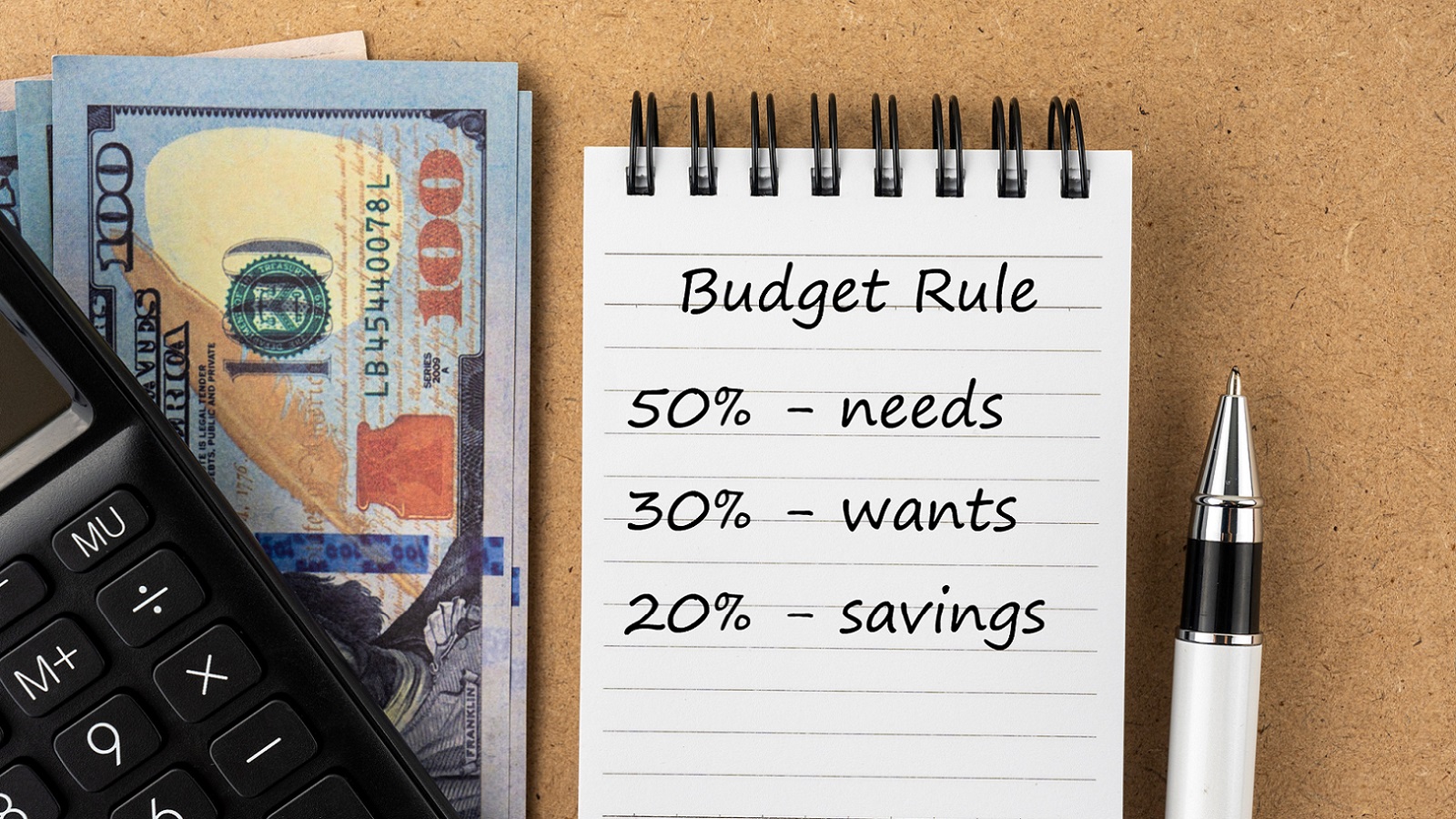10 Top Money and Finance Blogs You Should Read
These Web sites can help you save more, spend less and manage your money wisely.

Profit and prosper with the best of Kiplinger's advice on investing, taxes, retirement, personal finance and much more. Delivered daily. Enter your email in the box and click Sign Me Up.
You are now subscribed
Your newsletter sign-up was successful
Want to add more newsletters?

Delivered daily
Kiplinger Today
Profit and prosper with the best of Kiplinger's advice on investing, taxes, retirement, personal finance and much more delivered daily. Smart money moves start here.

Sent five days a week
Kiplinger A Step Ahead
Get practical help to make better financial decisions in your everyday life, from spending to savings on top deals.

Delivered daily
Kiplinger Closing Bell
Get today's biggest financial and investing headlines delivered to your inbox every day the U.S. stock market is open.

Sent twice a week
Kiplinger Adviser Intel
Financial pros across the country share best practices and fresh tactics to preserve and grow your wealth.

Delivered weekly
Kiplinger Tax Tips
Trim your federal and state tax bills with practical tax-planning and tax-cutting strategies.

Sent twice a week
Kiplinger Retirement Tips
Your twice-a-week guide to planning and enjoying a financially secure and richly rewarding retirement

Sent bimonthly.
Kiplinger Adviser Angle
Insights for advisers, wealth managers and other financial professionals.

Sent twice a week
Kiplinger Investing Weekly
Your twice-a-week roundup of promising stocks, funds, companies and industries you should consider, ones you should avoid, and why.

Sent weekly for six weeks
Kiplinger Invest for Retirement
Your step-by-step six-part series on how to invest for retirement, from devising a successful strategy to exactly which investments to choose.
In my more than 12 years writing for Kiplinger, I've seen the number of print personal finance publications shrink. Yet I've seen the number of blogs dedicated to the topic explode. It seems like everybody has a story to share about getting out of debt, living a frugal life or managing money wisely.
Despite the large number of personal finance blogs, only a handful tend to offer valuable advice and solid guidance. In the past, I've named some of my favorites (see 10 Personal Finance Blogs Worth Reading and Our Picks for Best Money Blogs). Since then, I have discovered several more that I frequently feature in my weekly roundups of advice from around the Web. Here are ten personal finance blogs I regularly read that you should be reading, too:
Bargaineering. Jim Wang created this blog in 2005 and now has several contributors who, along with Wang, write about how to earn more, save more and spend less in terms anyone can understand. You'll find posts on a large variety of money topics ranging from lowering your bills to dealing with a denied health insurance claim to heating an entire room with tea lights. However, Wang writes that the real goal of Bargaineering is to help people do more of what they love with the people they love.
From just $107.88 $24.99 for Kiplinger Personal Finance
Become a smarter, better informed investor. Subscribe from just $107.88 $24.99, plus get up to 4 Special Issues

Sign up for Kiplinger’s Free Newsletters
Profit and prosper with the best of expert advice on investing, taxes, retirement, personal finance and more - straight to your e-mail.
Profit and prosper with the best of expert advice - straight to your e-mail.
Block Talk. You'll find plenty of trustworthy tax advice on this H&R Block blog. But it also offers lots of valuable tips on budgeting, career, credit, saving and more. What I really like, though, are Block Talk's infographics that make money matters visually appealing, easy to digest and -- dare I say it -- fun.
Christian Personal Finance. Despite the name, this blog doesn't overwhelm readers with a Christian message (it's present in some posts but not all). For the most part, it just offers great personal finance advice anyone should follow, regardless of his or her religious views.
Credit.com Blog. Think of the Credit.com Blog as your go-to source for all things credit and debt. The advice comes from a large number of experts, including Adam Levin, the former director of the New Jersey Division of Consumer Affairs; Gerri Detweiler, the author of two credit and debt books; and several financial planners and personal finance journalists.
Credit Donkey. This relatively new independent credit-card comparison site offers money-saving advice geared toward college students, young adults and families. Like Block Talk, it frequently features infographics that make learning about personal finance more fun.
Good Financial Cents. Certified financial planner and author Jeff Rose writes about investing, saving for retirement and paying down debt in terms anyone can understand. He frequently writes about his own experiences (including mistakes he's made), which can be inspiring for people looking for the encouragement to save more and spend less.
Money Under 30. As the name suggests, Money Under 30 caters to young adults who need help understanding the basics of personal finance, breaking bad money habits and getting on a path to financial success. Although David Weliver, who's been writing the blog since 2006, is over 30 now, he's still dedicated to helping twentysomethings avoid the money mistakes he made when he was younger.
PT Money. Like many other financial bloggers, a lot of debt and little savings prompted Philip Taylor to learn more about personal finance and share that knowledge with others. Since creating the PT Money blog in 2007, he's written about taking control of his financial life. He and contributors to the blog provide tips about making more money, saving money and spending wisely.
ReadyForZero Blog. Since it launched in 2011, ReadyForZero.com has been one of our favorite budgeting sites. Its blog builds upon what the site's free tools offer: help for people in debt. It offers expert advice on budgeting, managing student loans, handling credit card debt as well as success stories to inspire you to become debt-free.
SavingAdvice.com. I can always find great tips for saving money on everyday expenses at this site, which also provides advice on investing, earning more, building a nest egg and a variety of other personal finance topics.
Profit and prosper with the best of Kiplinger's advice on investing, taxes, retirement, personal finance and much more. Delivered daily. Enter your email in the box and click Sign Me Up.

Award-winning journalist, speaker, family finance expert, and author of Mom and Dad, We Need to Talk.
Cameron Huddleston wrote the daily "Kip Tips" column for Kiplinger.com. She joined Kiplinger in 2001 after graduating from American University with an MA in economic journalism.
-
 Farmers Brace for Another Rough Year
Farmers Brace for Another Rough YearThe Kiplinger Letter The agriculture sector has been plagued by low commodity prices and is facing an uncertain trade outlook.
-
 Stocks Drop as Iran Worries Ramp Up: Stock Market Today
Stocks Drop as Iran Worries Ramp Up: Stock Market TodayPresident Trump said he will decide within the next 10 days whether or not the U.S. will launch military strikes against Iran.
-
 Over 65? Here's What the New $6K Senior Tax Deduction Means for Medicare IRMAA
Over 65? Here's What the New $6K Senior Tax Deduction Means for Medicare IRMAATax Breaks A new tax deduction for people over age 65 has some thinking about Medicare premiums and MAGI strategy.
-
 I Need to Cut $1,000 From My Monthly Budget, and I've Already Given Up Starbucks and Dining Out. What Else Can I Do?
I Need to Cut $1,000 From My Monthly Budget, and I've Already Given Up Starbucks and Dining Out. What Else Can I Do?Here are some creative ways to save up to $1,000 a month, even if you feel like you've already made all of the obvious cuts.
-
 I'm a Government Employee and Need to Get By Until the Shutdown Ends. What Can I Do?
I'm a Government Employee and Need to Get By Until the Shutdown Ends. What Can I Do?The second-longest shutdown in history is leaving many federal workers with bills due and no paycheck to cover them. Here's what you can do to get by.
-
 What Does Medicare Not Cover? Eight Things You Should Know
What Does Medicare Not Cover? Eight Things You Should KnowMedicare Part A and Part B leave gaps in your healthcare coverage. But Medicare Advantage has problems, too.
-
 Five Ways to Save on Vacation Rental Properties
Five Ways to Save on Vacation Rental PropertiesTravel Use these strategies to pay less for an apartment, condo or house when you travel.
-
 How to Avoid Annoying Hotel Fees: Per Person, Parking and More
How to Avoid Annoying Hotel Fees: Per Person, Parking and MoreTravel Here's how to avoid extra charges and make sure you don't get stuck paying for amenities that you don't use.
-
 The 50-30-20 Budget Rule: A Simple Way to Save Money
The 50-30-20 Budget Rule: A Simple Way to Save MoneySaving Using the 50-30-20 budget rule is an easy way to save. It helps you prioritize saving while paying off debt.
-
 'Food Tax': Which States Still Tax Groceries?
'Food Tax': Which States Still Tax Groceries?State Tax Ten states still tax groceries, but that figure is shrinking.
-
 How Our Family Fights Inflation
How Our Family Fights InflationBudgeting Millennials typically spend more than other generations on certain expenses that have been increasing most rapidly. Here are some tips to cut your losses.